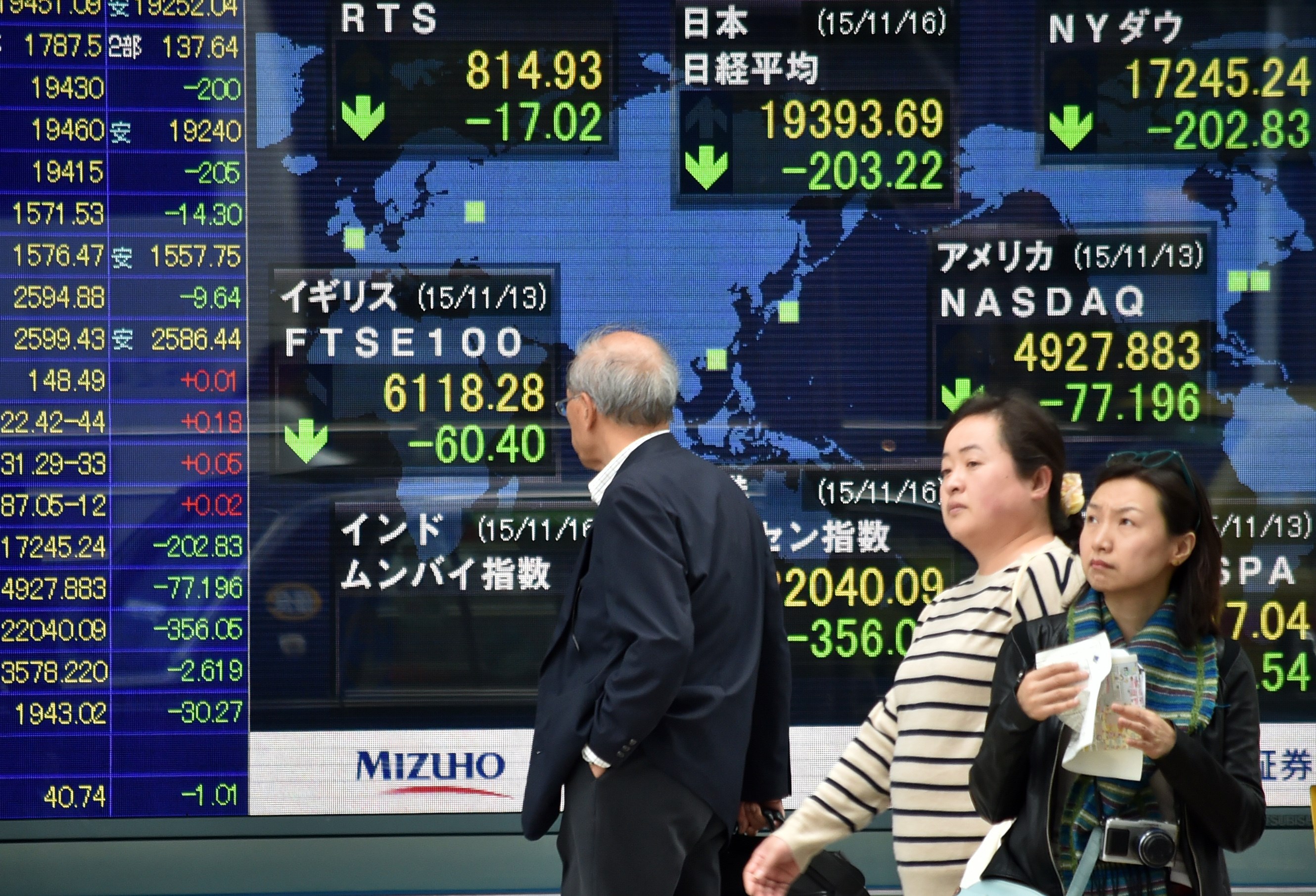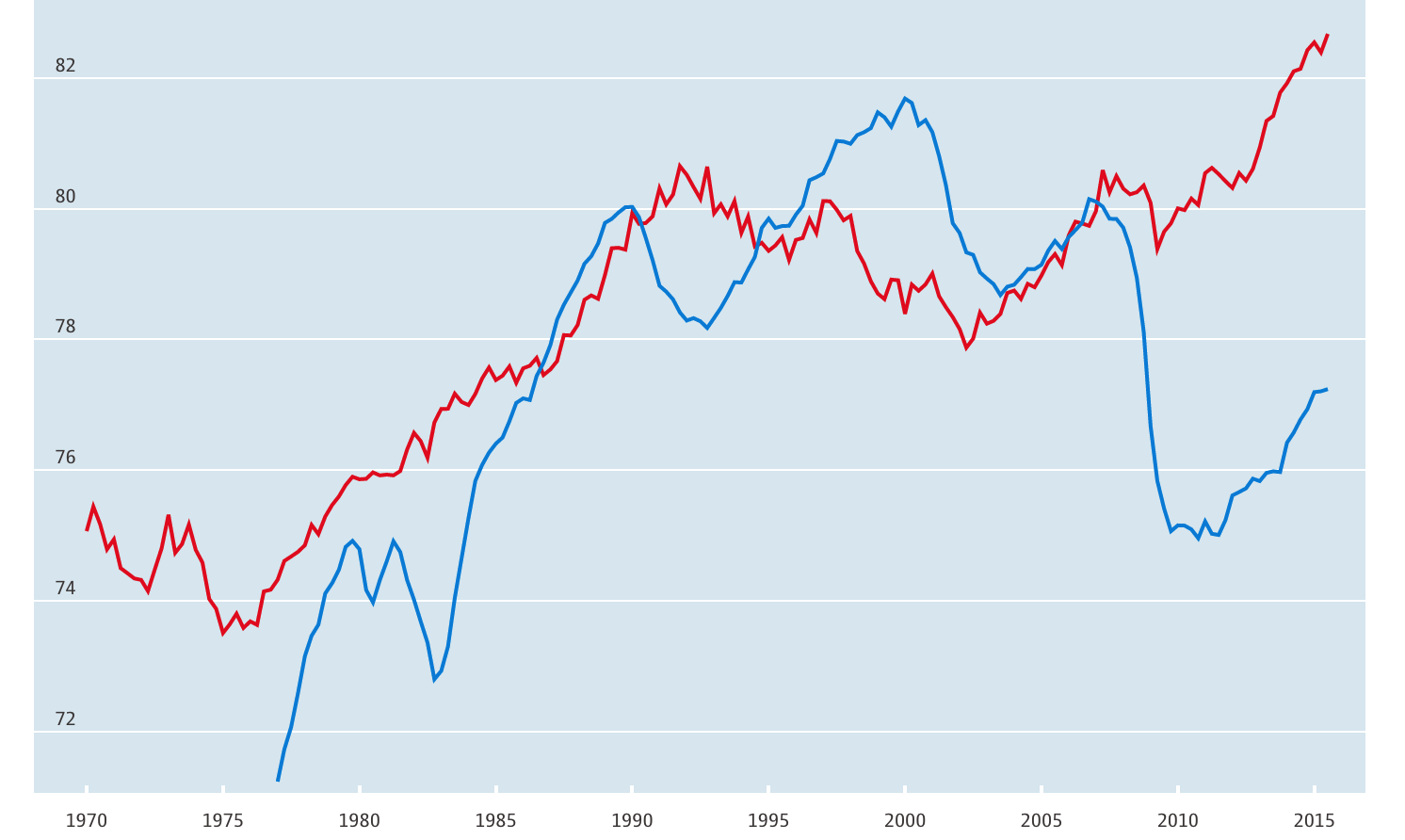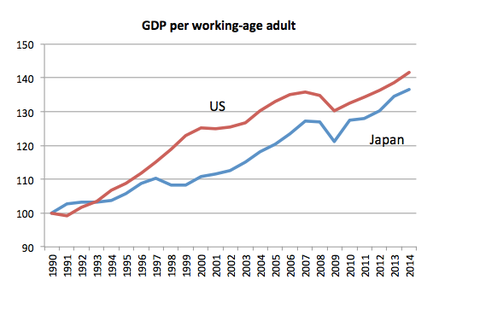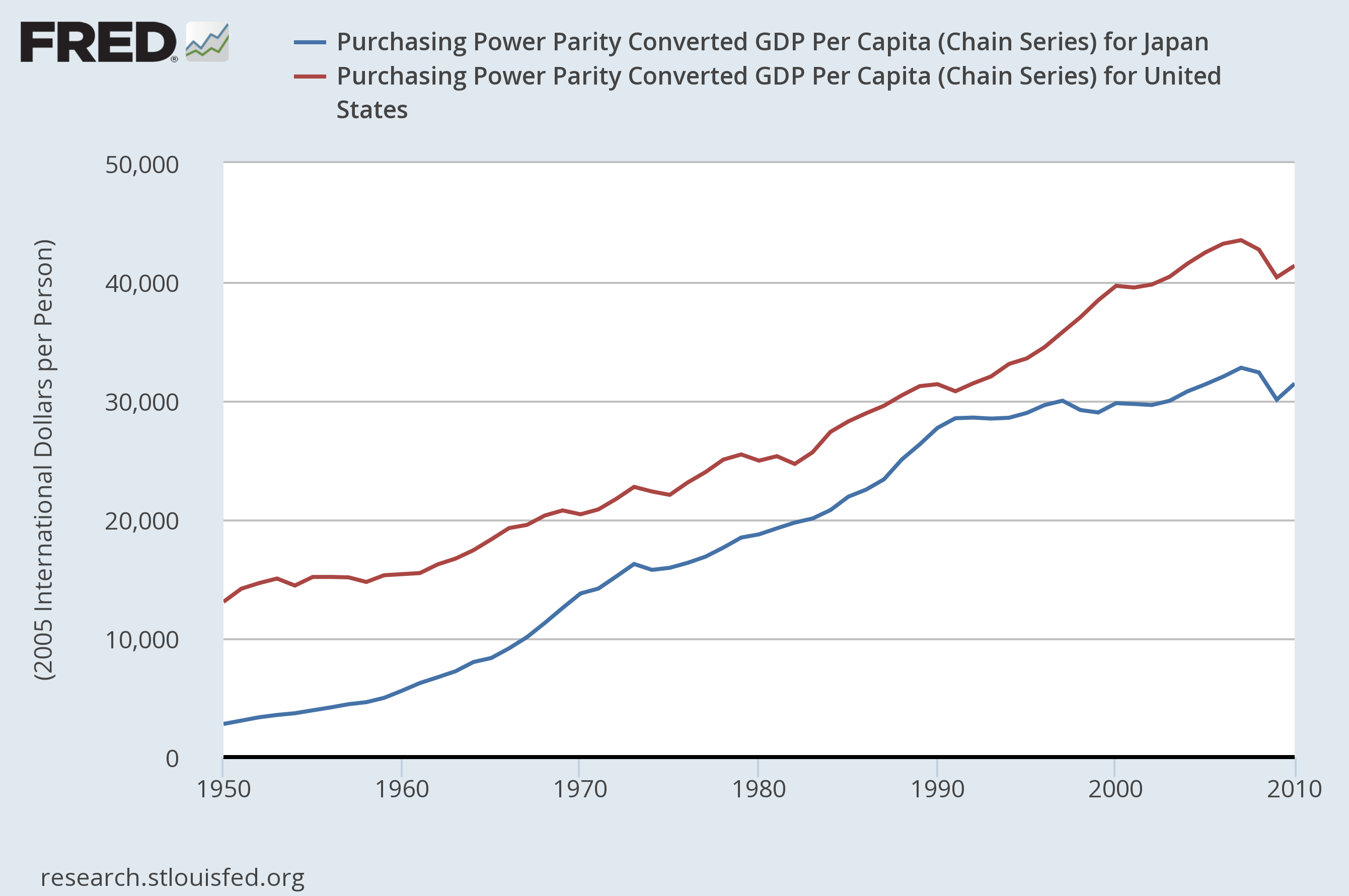Why can't Japan shake its economic malaise? Two words: old people.
On Japan's astonishing demographic crisis


A free daily email with the biggest news stories of the day – and the best features from TheWeek.com
You are now subscribed
Your newsletter sign-up was successful
The Japanese economy is in recession for the upteenth time in the last few years. And no matter how you slice it, it's hard to escape the conclusion that Japan's lopsided demographics are the main culprit.
New data released on Monday shows Japan's GDP shrank by 0.8 percent in the third quarter, after suffering a similar decline in the second. It's more bad news for a country that has been battling stagnant economic growth ever since the epic collapse of its housing and stock markets in 1990. Prime Minister Shinzo Abe came into office at the end of 2012, aiming to boost the economy through a tri-part approach of easy monetary policy, fiscal stimulus, and structural reform — colloquially named "Abenomics" — but so far the results have been middling.
This is a good opportunity to look back and assess Abenomics so far. But before we do that, we should also work through just how different Japan's situation is from the United States, especially since Japan is regularly held up as the specter of economic malaise towards which America is slowly drifting.
The Week
Escape your echo chamber. Get the facts behind the news, plus analysis from multiple perspectives.

Sign up for The Week's Free Newsletters
From our morning news briefing to a weekly Good News Newsletter, get the best of The Week delivered directly to your inbox.
From our morning news briefing to a weekly Good News Newsletter, get the best of The Week delivered directly to your inbox.
Let's start with the elephant in the room, which is demographics. Americans over 65 are currently around 14 percent of the population, and are projected to hit 20 percent in 2050. But the over-65 crowd in Japan is 26 percent of its population right now, and is projected to hit 40 percent by 2050. In fact, the number of Japanese between age 15 and 64 has been shrinking in absolute terms ever since it peaked in the mid-1990s.
This matters for growth. Redistributing some portion of economic production can often spark new economic growth, but this is not the case with the elderly. Most poor people, for instance, live in communities that have been locked out of the feedback loops that create sustained growth; giving them money and resources can help kickstart those feedback loops again. But redistributing resources to the elderly is different: It's obviously a moral necessity, but it gets tricky economically. While it can certainly help aggregate demand, which matters, old people generally aren't going to be re-entering the workforce no matter how many jobs you create.
So if your population's share of old people is big and growing fast, that means your working population has to produce more and more to keep up. And if your workers can't keep up, then economic production gets spread thinner and thinner.
This is not really a problem for America. Our population of elderly will grow slow enough and remain small enough that economic productivity per worker can easily outpace it.
A free daily email with the biggest news stories of the day – and the best features from TheWeek.com
Not so Japan.
The best way to understand this is to first realize that Japan actually does a much better job than the U.S. at employing its population that's actually of working age. At no point in the last 45 years has its unemployment rate even reached 6 percent. The portion of Japanese people between age 25 and 54 who hold a job has consistently performed as well or better than America over that same time period:

Employment rate of population age 25-54, Japan in red, United States in blue. (Graph courtesy of the Organization for Economic Cooperation and Development.)
This is what's so disturbing about Japan's situation. The standard left-Keynesian approach to economic stagnation is to open the the floodgates of fiscal and monetary stimulus: Run big deficits, spend lots of money to boost jobs and aggregate demand, and print lots of money. There's lots of evidence America still suffers from severe slack in its labor market, and our demographics are good, so this remains the playbook in our case. But Japan already did that, and not just beginning with Abenomics. By all accounts, after the 1990s collapse, Japan's monetary policy reacted the way it's supposed to. They've been running budget deficits around 6 to 8 percent of GDP for most of the last 15 years, even before you count spending on interest payments.
And it worked! As the above data shows, they've done a pretty good job maintaining full employment, or something close to it. They've even kept up productivity growth: Since 1990, Japan's gross domestic product (GDP) per working-age adult remained slightly below that of America, but increased just as fast or faster.

(Graph courtesy of Paul Krugman.)
But it wasn't enough. The problem is GDP per person — i.e. GDP per everyone in the country, including the elderly — which has been at a virtual standstill since 1990:

That difference between GDP per working age adult and GDP per person is really the signal of Japan's demographic crisis. They're bleeding off huge amounts of wealth production to care for an elderly population that isn't in the labor force itself. And while that helps aggregate demand, and keeps Japan near the peak of its potential productive capacity, it can't really enlarge that productive capacity by bringing workers back into the economy. In some ways, Japan is actually running its economy pretty hot, and yet both its inflation rate and the projected growth rate of its GDP are both basically nil. Which is just nuts.
So what can Japan do? The first and best thing to do would be to start making a lot more babies and get its fertility rate up a bit — an enormously complex social engineering goal that's beyond the ken of this author. Cutting the support Japan offers its elderly population could help too, though obviously you can't take this very far before you have to start jettisoning morality or conscience.
But Japan might be able to squeeze more growth out of its demographics as they stand, as well. For one thing, while Japan's employment is high, a lot of that employment isn't very good. Lots of workers have unreliable, irregular jobs, poverty rates are almost as high as in America, and inequality is also nearly as bad. It's possible Japan could improve overall productivity if it got more people into regular employment, increased some income taxes to lop off inequality, and shifted its social spending more towards the working poor and away from its lopsided focus on the elderly.
In fact, after Abenomics first kicked off, Japan's inflation rate spiked well over 2 percent — something that hadn't happened in over two decades, and a sign of an economy kicking into higher gear. Then Japan panicked, and hiked their national consumption tax from 5 percent to 8 percent in April of 2015. The deficit shrank, but inflation and growth cratered again. So, as crazy as it may sound, maybe Japan just hasn't stomped hard enough on the fiscal stimulus gas pedal: Maybe they need deficits in the realm of 15 or 20 percent of GDP for a while.
Japan could also have its central bank buy up as much of its own debt as possible. That would help to hold down its interest rates and keep its already-sizeable debt service payments — about a quarter of government spending — from increasing further.
So they've got options. But their also in a pretty sticky situation.
Happily, America is not nearly so limited by economic reality. Unhappily, our problems are entirely political and self-inflicted.
Jeff Spross was the economics and business correspondent at TheWeek.com. He was previously a reporter at ThinkProgress.
-
 How the FCC’s ‘equal time’ rule works
How the FCC’s ‘equal time’ rule worksIn the Spotlight The law is at the heart of the Colbert-CBS conflict
-
 What is the endgame in the DHS shutdown?
What is the endgame in the DHS shutdown?Today’s Big Question Democrats want to rein in ICE’s immigration crackdown
-
 ‘Poor time management isn’t just an inconvenience’
‘Poor time management isn’t just an inconvenience’Instant Opinion Opinion, comment and editorials of the day
-
 The pros and cons of noncompete agreements
The pros and cons of noncompete agreementsThe Explainer The FTC wants to ban companies from binding their employees with noncompete agreements. Who would this benefit, and who would it hurt?
-
 What experts are saying about the economy's surprise contraction
What experts are saying about the economy's surprise contractionThe Explainer The sharpest opinions on the debate from around the web
-
 The death of cities was greatly exaggerated
The death of cities was greatly exaggeratedThe Explainer Why the pandemic predictions about urban flight were wrong
-
 The housing crisis is here
The housing crisis is hereThe Explainer As the pandemic takes its toll, renters face eviction even as buyers are bidding higher
-
 How to be an ally to marginalized coworkers
How to be an ally to marginalized coworkersThe Explainer Show up for your colleagues by showing that you see them and their struggles
-
 What the stock market knows
What the stock market knowsThe Explainer Publicly traded companies are going to wallop small businesses
-
 Can the government save small businesses?
Can the government save small businesses?The Explainer Many are fighting for a fair share of the coronavirus rescue package
-
 How the oil crash could turn into a much bigger economic shock
How the oil crash could turn into a much bigger economic shockThe Explainer This could be a huge problem for the entire economy
